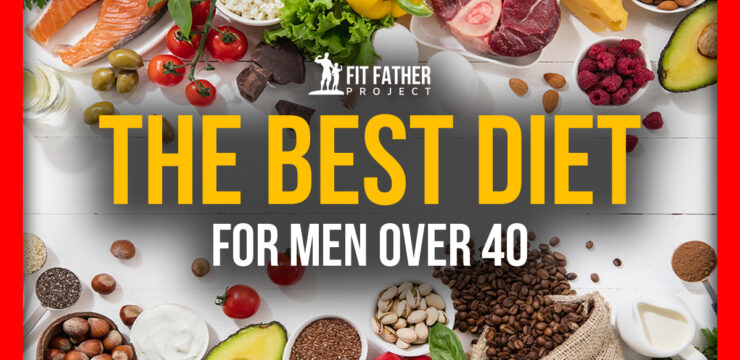Your 50s can be one of the most fulfilling and empowering stages of life.
It’s a time when many people have a better sense of who they are, what matters most to them, and how they want to live.
But it’s also a time when maintaining steady energy becomes increasingly important.
Shifts in metabolism, hormone balance, and muscle mass can all influence how vibrant you feel from day to day. The good news is that food can be a powerful ally. Eating the right kinds of foods can help support energy, improve mood, and keep you feeling strong and active throughout this decade and beyond. As the body changes with age, its nutritional needs shift. The metabolism tends to slow, and digestion can become a little less efficient. The goal is not to eat less but to eat smarter—choosing foods that deliver steady energy rather than quick bursts followed by fatigue. The best way to achieve this is through a balanced diet filled with whole, nutrient-rich foods that keep your blood sugar stable and your body fueled. Complex carbohydrates are a great starting point for maintaining energy in your 50s. Unlike refined carbs, which can cause spikes and drops in blood sugar, complex carbs provide a slow and steady release of energy. Whole grains such as oats, brown rice, quinoa, and whole-grain bread or pasta are excellent choices. These foods contain fiber, which not only helps with digestion but also helps keep you full longer and supports heart health. Pairing these grains with protein or healthy fats can further stabilize energy levels throughout the day. Protein plays a major role in maintaining strength and vitality. After 50, the body naturally begins to lose muscle mass, making it even more important to include enough protein in your meals. Foods like fish, chicken, eggs, tofu, beans, and lentils are all great options. Protein helps repair tissues, supports the immune system, and contributes to a lasting feeling of fullness, which can prevent energy dips between meals. Including a source of protein at every meal—whether a handful of nuts at breakfast, beans in your salad at lunch, or grilled fish at dinner—helps sustain consistent energy. Healthy fats are another essential component of a balanced diet in your 50s. They support brain function, help absorb important vitamins, and can even help manage inflammation. Fat is also a concentrated source of energy, making it a useful addition to your diet when chosen wisely. Avocados, olive oil, nuts, seeds, and fatty fish like salmon or sardines are rich in heart-healthy unsaturated fats. These foods can help you feel satisfied and energized without weighing you down. Fruits and vegetables are always a cornerstone of good nutrition, but in your 50s, they take on even greater importance. They provide essential vitamins, minerals, and antioxidants that support overall energy and protect against fatigue caused by oxidative stress. Brightly colored produce—such as berries, oranges, spinach, kale, carrots, and bell peppers—is packed with nutrients that help the body function efficiently. Leafy greens and cruciferous vegetables like broccoli and cauliflower, in particular, supply iron and magnesium, which are vital for oxygen transport and muscle function. Iron is one nutrient that deserves special attention when it comes to energy. Low iron levels can lead to fatigue and reduced endurance. While red meat is a well-known source, plant-based foods like lentils, chickpeas, spinach, and fortified cereals also contain iron. Pairing these with vitamin C-rich foods such as citrus fruits or tomatoes can enhance absorption and help you make the most of every meal. Another often-overlooked mineral for energy is magnesium. It plays a key role in converting food into fuel and helps the muscles and nerves function properly. Foods like almonds, pumpkin seeds, leafy greens, and whole grains are excellent sources. Adding a small handful of nuts or seeds to your breakfast or snack is a simple way to keep magnesium levels up and energy steady. B vitamins are equally important. They help the body turn food into usable energy and support brain and nerve function. Whole grains, eggs, dairy products, and leafy vegetables are rich in B vitamins, especially B6 and B12. Some people in their 50s may absorb vitamin B12 less efficiently, so it’s wise to include sources like fortified cereals or discuss supplementation with a healthcare provider if needed. Hydration also plays a surprisingly large role in maintaining energy. Even mild dehydration can make you feel tired or unfocused. As people age, the sense of thirst can become less sharp, so it’s important to make a conscious effort to drink water regularly. Herbal teas, water infused with lemon or mint, and foods with high water content—such as cucumbers, melons, and oranges—can all contribute to good hydration. Balancing blood sugar is another key to steady energy. Eating large, heavy meals or consuming too much sugar can lead to energy crashes. Instead, aim for balanced meals that combine protein, complex carbohydrates, and healthy fats. If you find your energy dipping mid-afternoon, choose a nourishing snack like yogurt with fruit, a handful of nuts, or hummus with vegetables instead of reaching for sugary treats. These small choices help maintain stable energy and prevent fatigue later in the day. It’s also worth paying attention to caffeine and alcohol. A moderate amount of caffeine can provide a helpful energy boost, but too much can disrupt sleep, which is essential for overall vitality. Try enjoying coffee or tea earlier in the day rather than late in the afternoon. Similarly, while an occasional glass of wine can be enjoyable, too much alcohol can affect hydration and interfere with restorative sleep. Balance and moderation are key. One of the best things you can do to support energy in your 50s is to focus on variety. Eating a colorful mix of foods ensures you’re getting a broad range of nutrients that work together to keep your body strong and your energy consistent. Changing up your meals also keeps eating exciting, making it easier to stick with healthy habits long term. Listening to your body is equally important. As digestion and metabolism change with age, some foods may affect you differently than they used to. Pay attention to how you feel after meals, and adjust accordingly. Smaller, more frequent meals can sometimes work better than large ones, helping to maintain stable energy and reduce discomfort. Finally, remember that food is just one part of the energy equation. Regular physical activity, adequate sleep, and stress management all work hand in hand with nutrition to keep your body and mind in balance. Eating well in your 50s is not about restriction or strict rules—it’s about nourishment, enjoyment, and supporting your body’s needs through wholesome choices. By focusing on whole, natural foods that provide lasting energy, you can move through your 50s with vitality and confidence. Every meal is a chance to strengthen your body, fuel your day, and enhance your overall well-being. With thoughtful eating habits and a positive mindset, this decade can be one of your most energetic and rewarding yet.






